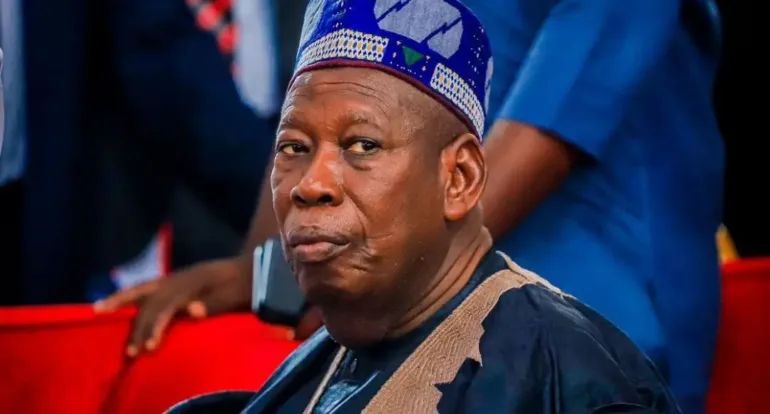A Kano State High Court on Tuesday dismissed a motion filed by the National Chairman of the All Progressives Congress (APC), Abdullahi Umar Ganduje, challenging the court’s jurisdiction to hear an 11-count corruption charge against him and seven others.
Presiding Judge, Justice Amina Adamu Aliyu, ruled that the preliminary objections raised by Ganduje—former governor of Kano State—and his co-defendants were “incompetent” and without merit. She affirmed the court’s jurisdiction to entertain the charges, which include allegations of bribery, criminal conspiracy, misappropriation, and diversion of public funds totaling billions of naira.
“The charges before this court are competent. The power to investigate criminal matters is not exclusive to the police. The Kano State Public Complaints and Anti-Corruption Commission is equally empowered by law,” Justice Aliyu stated.
She further emphasized that the trial would continue, even in the absence of the defendants, and summoned the sixth defendant, Lamash Properties Limited. The matter was adjourned to July 30 and 31 for hearing.
Other defendants include Ganduje’s wife, Prof. Hafsat Umar, Abubakar Bawuro, Umar Abdullahi Umar, Jibrilla Muhammad, Safari Textiles Limited, Lasage General Enterprises Limited, and Lamash Properties Limited.
Lead prosecution counsel, Adeola Adedipe, SAN, urged the court to dismiss the objections, describing them as deliberate attempts to delay the trial.
“The objections lack legal foundation. We urged the court to allow justice to take its course,” Adedipe said.
Ganduje’s legal team, led by Lydia Oluwakemi Oyewo, had filed a preliminary objection dated November 18, 2024, seeking to quash the charges on the basis of jurisdiction.
Similar objections were filed between September and October 2024 by counsel representing the third, fifth, sixth, and eighth defendants: Chief M. N. Duru, SAN; Mr. Muhammad Shehu; Mr. Abubakar Ahmad; and Mr. Faruk Asekome, respectively—all challenging the court’s competence and the legitimacy of the charges.
Justice Aliyu concluded: “None of the applications have merit. The case must proceed in line with due process.”


